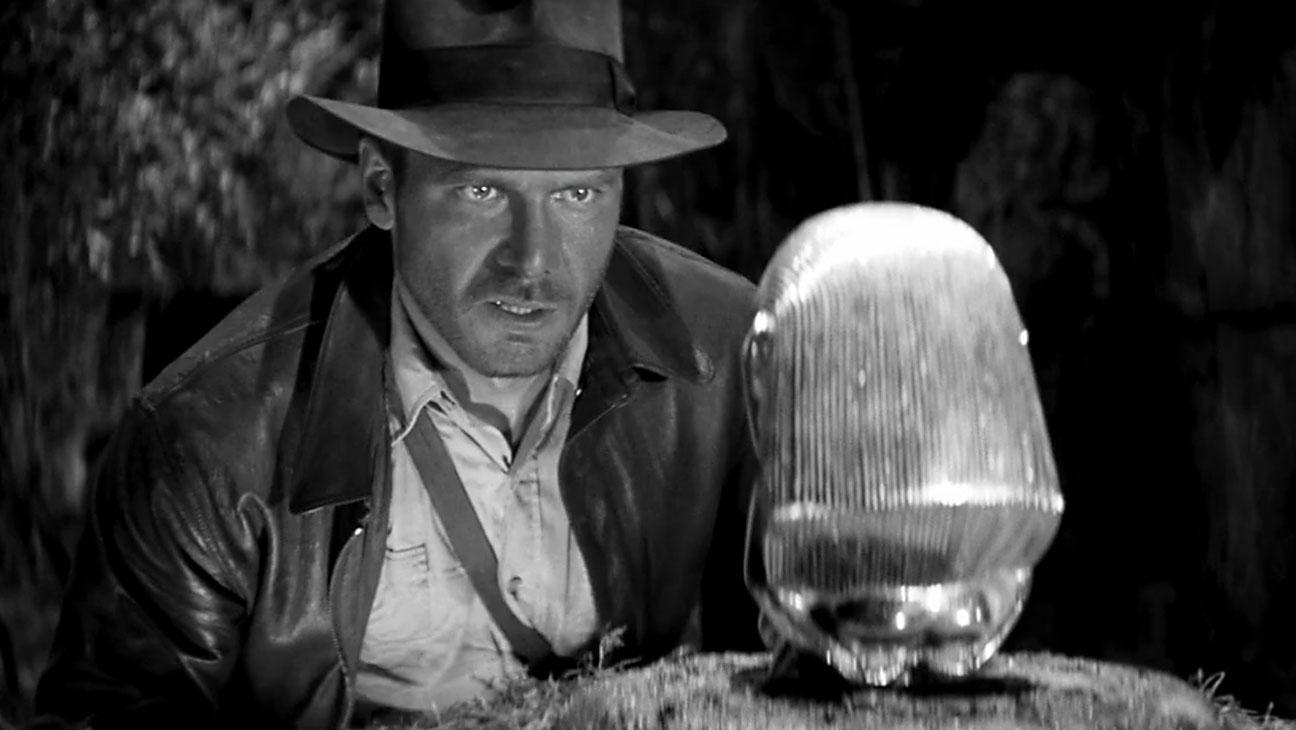A long time ago, I was a young aspiring filmmaker and wanted to learn - really learn - how to make good films. So I went to a family friend who had some connections in the entertainment business and asked him what to do. He said "watch a lot of films."
So I did. And I became a colossal movie nerd. And even though the filmmaking part of my life is over, I still watch movies to learn from them. It's nice to know I'm not alone.
The other day, Steven Soderbergh, one of the most interesting mainstream filmmakers working today, posted on his blog a version of Raiders of the Lost Ark that he recut into a silent B+W film as an exercise to learn about film staging from Steven Spielberg, a "filmmaker [who] forgot more about staging by the time he made his first feature than I know to this day." He also replaced the classic John Williams score with the score from The Social Network, by Trent Reznor and Atticus Ross to strip away everything familiar about the film and "aid you in your quest to just study the visual staging aspect." For Soderbergh, staging is important because it "refers to how all the various elements of a given scene or piece are aligned, arranged, and coordinated...I value the ability to stage something well because when it’s done well its pleasures are huge, and most people don’t do it well, which indicates it must not be easy to master."
In other words, "I operate under the theory a movie should work with the sound off, and under that theory, staging becomes paramount."
As a movie nerd, I love that Soderbergh did this. As a lawyer, I'm cool with it too. In his blog post, Soderbergh strikes a defensive, almost sheepish, tone, saying that he's aware he's not allowed to recut Raiders, but did it anyway as a learning exercise. This hedging caught me off guard a bit, since it stands in opposition to the confidence he displays in the rest of the piece. Nevertheless, if I was his attorney, I'd tell him not to worry; as far as I'm concerned, this is a classic fair use scenario. I've spoken about the pitfalls of relying on a fair use defense in the past. My chief concern is that it's not a cut and dried thing. You have to weigh different factors based on the particulars of your case. To complicate matters, fair use is an "affirmative defense" which means you have to wait until you're sued for copyright infringement in order to assert it. It's a tough legal doctrine to use and even tougher to use well.
That doesn't mean you always need to ground the flight before it takes off, however. There are some pretty useful questions you can ask ahead of time to gauge whether using someone else's work without their permission is a risk you want to take. For starters, understand that the issue is less "what" are you doing to the already copyrighted work than "why" and "to what end?" If you're trying to make money from it or impinge on the owner's right to profit from it, that's the kind of thing a court would smack you for. But if you're using the work to inform and educate, or if your use says something critical about the work, those are the classic fair uses scenarios. In this case, that's exactly what Soderbergh is doing. He recut the film in order to say something about a crucial aspect of filmmaking. The fact that he's using Raiders to comment and teach is critical to the analysis, and it helps douse a potential lawsuit before it ever arises.
Don't forget the politics of this either. It's doubtful that Paramount (the film's copyright holder) or Spielberg would want to drag him through a legal proceeding. Soderbergh is a respected and beloved filmmaker, still at the height of his power (The Knick, anyone?). He's a potential collaborator and some of his movies made real money - i.e. the Oceans Trilogy. That's not a gift horse you look in the mouth. And let's be honest, this is precisely the kind of nerding around that Spielberg would probably appreciate.
Raiders of the Lost Ark is my all-time favorite film and Steven Soderbergh relied on fair use to recut it and show us just how great it is. In some alternate universe where I'm still 19-years old, I'm over the moon excited to watch and learn from it. Hell, 34-year old me still is.














